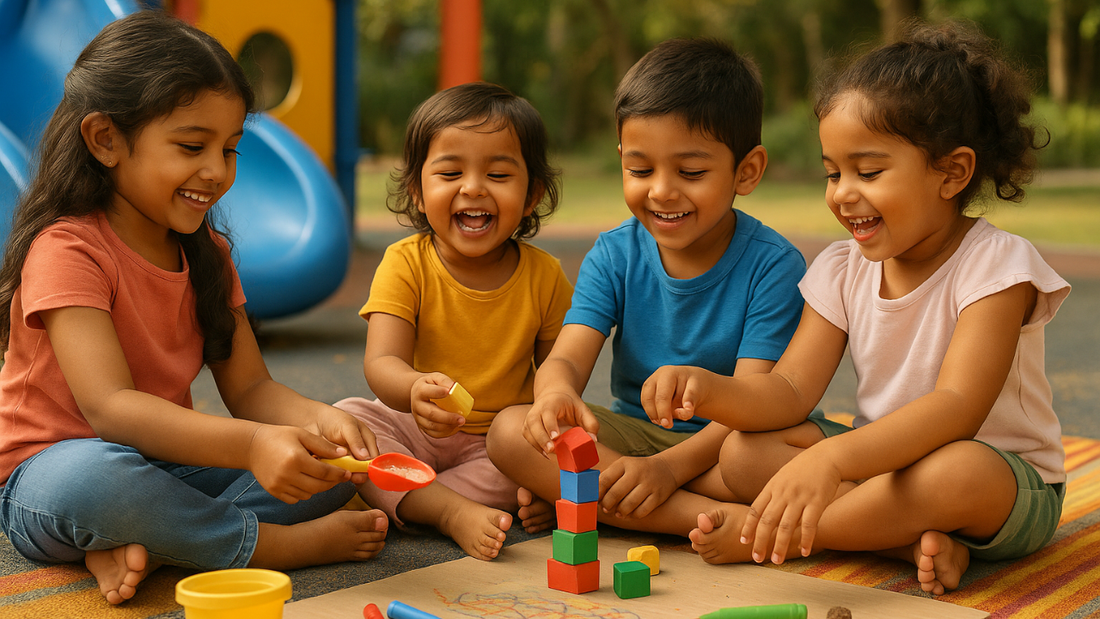
Social Skills Through Play: Helping Children Share and Cooperate
LiLLBUDSocial Skills Through Play: Helping Children Share and Cooperate
Children aren't only learning to walk, talk, and explore the world in their early years, but they’re also learning the skills that will shape how they connect with others for the rest of their lives. And if we look at it then one of the most natural ways for children to practice these skills is through play.
Children learn skills from sharing a box of crayons to taking turns on the slide, such as playtime teaches cooperation, empathy, and communication, skills that go far beyond the playground.
Why Social Skills Matter Early On
Social skills such as cooperation, sharing, and problem-solving enable children to make friends, collaborate in groups, and solve ordinary problems. The sooner they start practicing, the sooner these skills become second nature. Research shows that children who engage in cooperative play tend to:
-
Resolve conflicts more calmly
- Build stronger peer relationships
-
Feel more confident in social settings
The Role of Play in Teaching Sharing and Cooperation
Play is a child’s first classroom for understanding the give-and-take of relationships. Children learn the inherent benefits of teamwork, more ideas, more fun, and more connection, through role-playing games, construction projects, and group activities.
Key ways play supports social growth:
-
Turn-taking games (board games, ball toss) teach patience.
-
Role play (pretend shops, family play) builds empathy.
-
Group building activities (blocks, train sets) encourage communication and compromise.
- Practical Play Ideas to Build Social Skills
1. The Sharing Box
Put a variety of toys in one box and let kids play together. After a few minutes, encourage them to switch toys, and when they voluntarily do so, give them praise.
2. Cooperative Building
Give one set of building blocks to two or more children, and set a shared goal, like making the tallest tower together, so they’ll need to plan, negotiate, and collaborate.
3. Pass the Story
Play a fun game of passing the story, in this game children take turns adding a sentence to a story that has already been started. This teaches kids to wait their turn, listen to others, and build on the ideas of others.
4. Obstacle Course Teamwork
Create a basic indoor or outdoor obstacle course in which children have to assist one another (e.g., stabilizing a balance beam or rolling a ball through a tunnel).
Tips for Parents and Educators
-
Model sharing and cooperation in your own interactions.
-
Use positive reinforcement—praise specific cooperative behaviors (“I love how you let Maya have a turn with the truck!”).
-
Guide problem-solving by helping children use words to express feelings and negotiate solutions.
The Takeaway
Play is one of the greatest and most pleasurable ways to cultivate social skills, which are equally as effective as academic ones. Your child will learn how to connect, work together, and thrive in a world full of relationships if you provide opportunities for shared, cooperative play.


2 comments
p55eh2
p55eh2